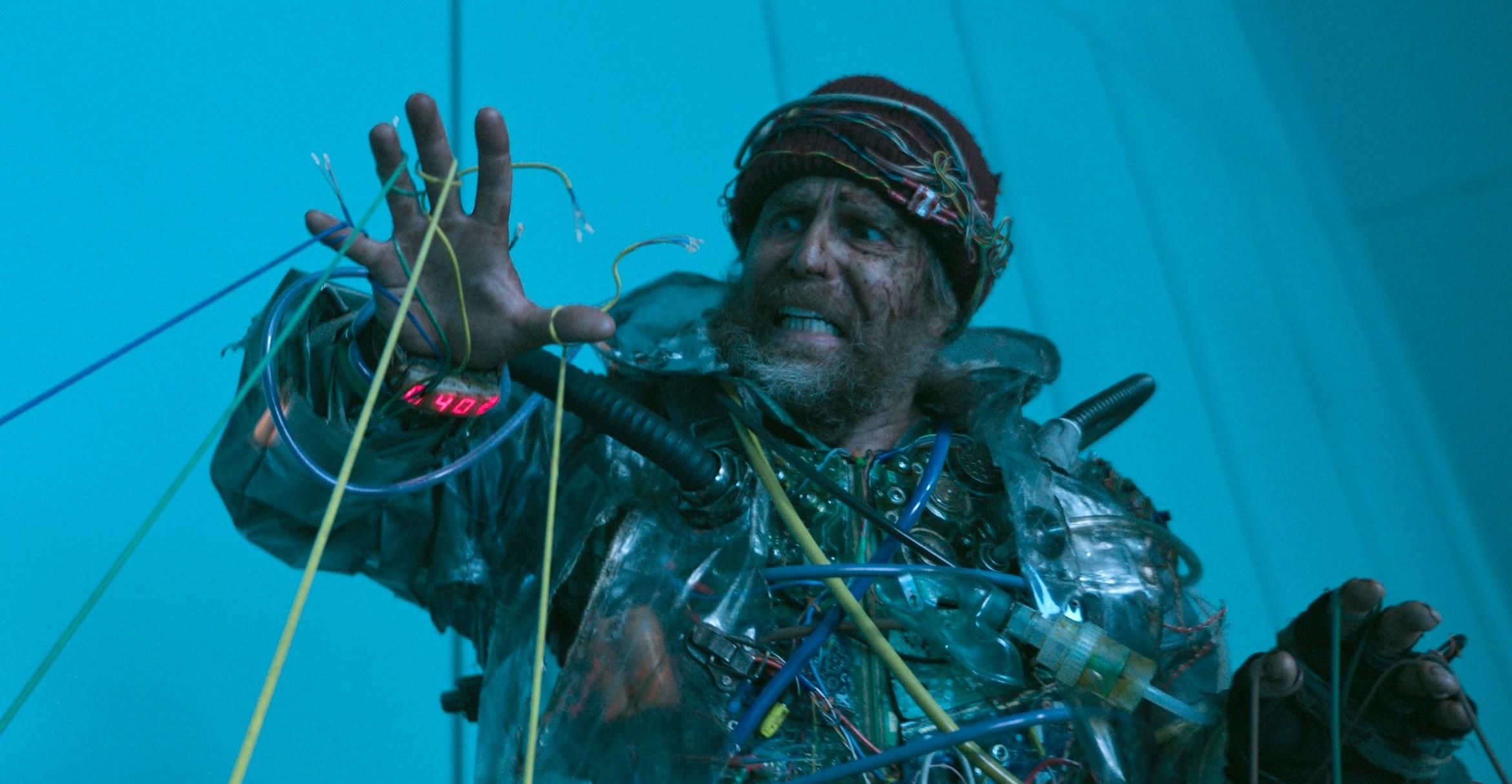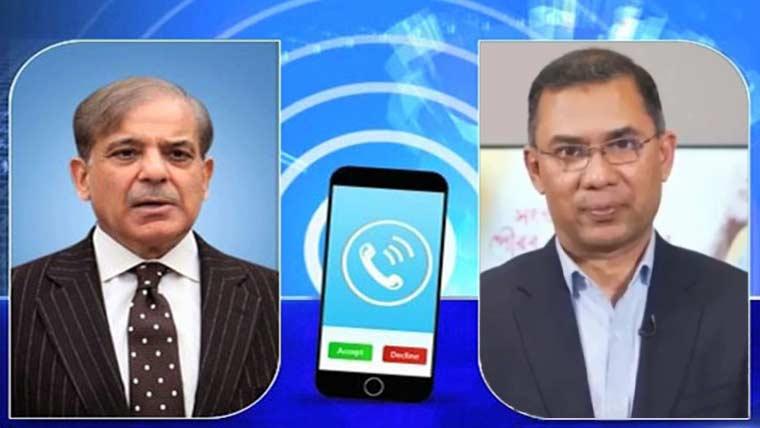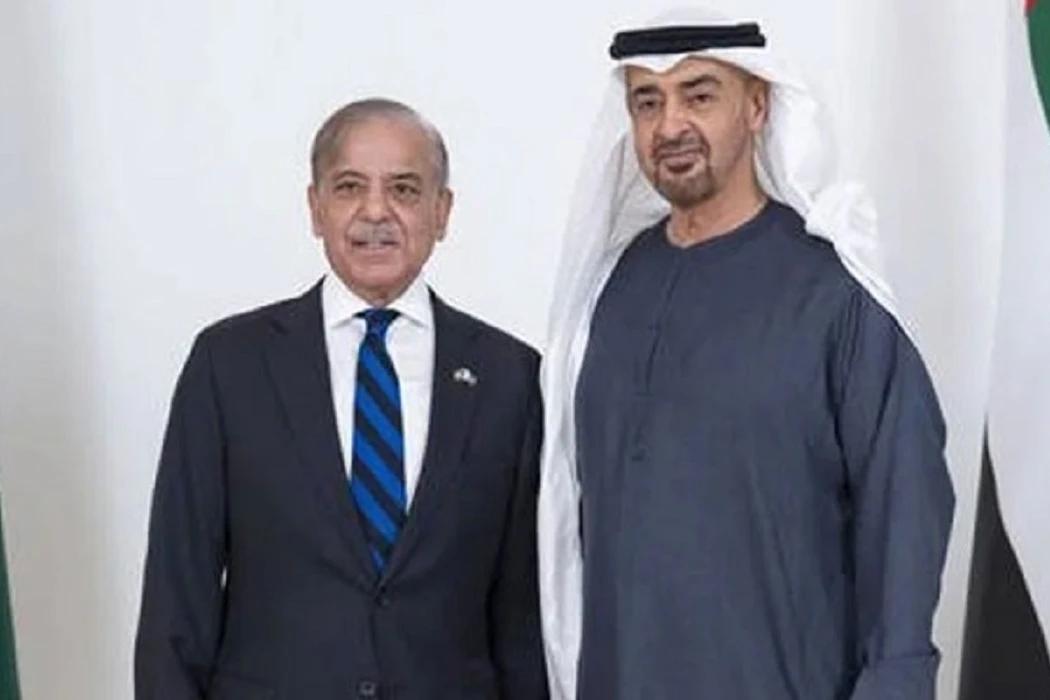PM Kakar calls for countering all terrorists including Hindutva inspired extremists
Caretaker Prime Minister Anwaar-ul-Haq Kakar while addressing the 78th session of the UN General Assembly in New York says the rising threat by the far right extremist and fascist groups poses genocide threat to Indian Muslims and Christians.


New York: Caretaker Prime Minister Anwaar ul Haq Kakar on Friday urged international community to counter all terrorists without any discrimination including Hindutva inspired extremists.
Addressing the 78th session of the UN General Assembly in New York on Friday, he pointed out that the rising threat by the far right extremist and fascist groups poses genocide threat to Indian Muslims and Christians.
He stressed the need to oppose state terrorism and address its root causes such as poverty, injustice and foreign occupation besides distinguishing genuine freedom struggles from terrorism.
The Prime Minister noted that development depends on peace. He said Pakistan is situated in one of the least economically integrated region in the world and it believes that region develops together. He said Pakistan, therefore, desires peaceful and productive relations with all its neighbours, including India.
He pointed out that Kashmir is the key to peace between Pakistan and India. Jammu and Kashmir dispute is one of the oldest issues on the agenda of Security Council. He regretted that India has evaded implementation of the Security Council's resolutions, which call for final disposition of Jammu and Kashmir to be decided by its people through UN supervised plebiscite.
Referring to the Indian atrocities in the illegally occupied Jammu and Kashmir especially ever since 5th August 2019, the Prime Minister called upon the UN Security Council to ensure the implementation of its resolutions on Kashmir dispute. He suggested the UN Military Observer Group for India and Pakistan be reinforced.
He urged the global powers to convince New Delhi to accept Islamabad's offer of mutual restraint on strategic and conventional weapons.
The Prime Minister termed peace in Afghanistan a strategic imperative for Pakistan.
He said though Pakistan shares the international community's concerns with respect to Afghanistan, particularly the rights of women and girls.
He, however, said Pakistan advocates continued humanitarian assistance to the destitute Afghan population in which Afghan women and girls are the most vulnerable as well as support for revival of the Afghan economy and implementation of connectivity projects with the Central Asia.
The Prime Minister said Pakistan's first priority is to prevent and counter all forms of terrorism from and within Afghanistan.
He said Pakistan condemns the cross border attacks against Pakistan by the TTP, Daesh and other groups operating from Afghanistan.
He said though Pakistan enjoys Afghan support and cooperation to prevent these attacks, but it is also taking necessary measures to end this externally encouraged terrorism.
Alluding to the phenomenon of Islamophobia, Anwaar-ul-Haq Kakar said it has assumed epidemic proportions after terrorist attacks of 9/11 as manifested in the negative profiling of Muslims and attacks on Islamic sites and symbols such as the recent public burning of Holy Quran.
He recalled that the UN General Assembly last year adopted a resolution proposed by Pakistan on behalf of the OIC declaring 15 March as an International Day to combat Islamophobia.
He said earlier this year the human rights council adopted an OIC resolution submitted by Pakistan urging states to outlaw the burning of the Holy Quran and similar provocations. He said Islamabad welcomes the legislation initiated by Denmark and contemplated by Sweden towards this end.
The Prime Minister said Pakistan and the OIC countries will propose further steps to combat Islamophobia including the appointment of a Special Envoy, creation of an Islamophobia data centre, legal assistance to victims and an accountability process to punish Islamophobic crimes.
Expressing Pakistan's commitment to rapid economic recovery, the Prime Minister said his government will stabilize country's foreign exchange reserves and currency, expand domestic revenues and most importantly mobilize significant domestic and external investment.
To this end, he said Pakistan has established a Special Investment Facilitation Council (SIFC) to expedite investment decisions.
He said 28 projects have been identified in priority sectors: agriculture, mining, energy and IT for implementation in collaboration with Pakistan's partners.
Anwaar-ul-Haq Kakar said Pakistan's long-term shift to geo-economics is well underway.
He said the second phase of the China-Pakistan Economic Corridor (CPEC) has been initiated covering railway, infrastructure, and manufacturing projects.
He said Pakistan also looks forward to the early implementation of the "Connectivity" projects with Central Asia.
Anwaar-ul-Haq Kakar said Pakistan's food, fuel and finance challenge is a prime illustration of the impacts of Covid-19 pandemic, conflicts and climate on developing countries.
He pointed out that Pakistan is one of the worst affected countries from the impacts of climate change. He recalled the epic floods of last summer submerged a third of the country, killed 1700 and displaced over eight million people, destroyed vital infrastructure and caused over 30 billion dollars in damage to Pakistan's economy.
He said Pakistan is gratified by the commitments of over 10.5 billion dollars for its comprehensive plan for recovery, rehabilitation and reconstruction with resilience. He said specific projects are being submitted to ensure timely funding and execution of the plan. He hoped the development partners will accord priority to release funds for its ‘resilient’ recovery Plan which has been costed at 13 billion dollars.
The Prime Minister said Pakistan also looks forward to the fulfillment of the climate change commitments made at COP28 by the developed world to provide over 100 billion dollars in annual climate finance.
He stressed that attempts to selectively provide these funds on the basis of geo-political considerations should be resisted.
The Prime Minister said that at the SDG Summit in New York, far-reaching commitments were made to implement the Sustainable Development Goals.
He underlined the need to ensure implementation of the 'SDG Stimulus'; the re- channeling of unused Special Drawing Rights for development; the expansion of concessional lending by the Multilateral Development Banks; and the resolution of the debt problems of the 59 countries in debt distress.
Alluding to the complex global and regional challenges that the world faces today, Anwaar ul Haq Kakar said these can be best addressed through effective multilateralism within the framework of the United Nations. He said Pakistan will continue to work actively to strengthen multilateral institutions and enhance global cooperation.
The Prime Minister said Pakistan does not believe in elitism within the comity of nations. He said Islamabad believes that adding additional permanent members to the Security Council will further erode its credibility and legitimacy.
He said the widest possible agreement can be best achieved on the basis of the Uniting for Consensus Group's proposal for expansion of the Council only in the non-permanent category with provision for a limited number of longer-term seats.
He said Pakistan believes that to build, preserve and promote peace and prosperity today, and in the future, it is vital to reduce great power rivalry and tensions.
To this effect, there is a need to ensure strict adherence to the UN Charter; consistently implement Security Council resolutions; eliminate the root causes of conflicts; and respect the principles of non-use of force; self-determination; sovereignty and territorial integrity; non-interference in the internal affairs of States and peaceful co- existence.
Anwaar ul Haq Kakar said the world cannot afford Cold War 2.0. There are far greater challenges confronting humankind which demand global cooperation and collective action.
Anwaar ul Haq Kakar was appreciative of the progress made towards ending conflicts in Syria and Yemen.
He also warmly welcomed the normalization of relations between Saudi Arabia and Iran. He, however, said the tragedy of Palestine unfortunately continues, with Israeli military raids, airstrikes, expansion of settlements and evictions of Palestinians.
The Pakistan Prime Minister said durable peace can be established only through a two state solution and the establishment of a viable and contiguous Palestinian State within the pre June 1967 borders, with Al-Quds Al-Sharif as its capital.
Tucker stars as Ireland crush Oman by 96 runs at T20 World Cup
- a day ago
First National Chief of Army Staff Wrestling Championship 2026 concludes in Sialkot
- a day ago

High voltage clash: India defeat pakistan by 61 Runs, qualify for Super Eight
- 7 hours ago

Field Marshal Syed Asim Munir meets global leaders during Germany visit
- 15 hours ago

PM Shehbaz leaves for Vienna, Austria on two-day official visit
- 15 hours ago

T20World Cup high voltage clash: India set 176 run target for Pakistan to win
- 11 hours ago
Imran Khan, both sons talk over phone after prolonged hiatus
- a day ago

DG ISPR visits various educational institutions of Lahore
- 15 hours ago

Good Luck, Have Fun, Don’t Die is a rollicking parable about this moment in tech
- 40 minutes ago

Could lab monkeys soon become a thing of the past?
- a day ago

SSWMB earns national recognition for clean Sindh initiative
- 12 hours ago

YouTube is coming to the Apple Vision Pro
- a day ago









